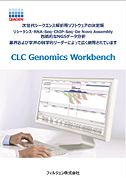
DNA-based molecular diagnostics (genotyping) have replaced serological methods. Blood group antigen typing is classically conducted using serological testing by hemagglutination, but recently this process has been automated.

The diversity of blood group antigens is primarily due to single nucleotide polymorphisms (SNP) in blood group genes. To date, 43 blood group systems containing 345 red cell antigens have been officially recognized by the International Society of Blood Transfusion (ISBT). Human red blood cells contain many blood group antigens. Numerous minor blood group systems that were not available in the KRBP data were also included in this study. A comparison of allele frequencies showed no significant differences compared to the KRBP data, but there were differences compared to the Erythrogene data for the Lutheran, Kell, Duffy, Yt, Scianna, Landsteiner-Wiener, and Cromer blood group systems. Except for some blood groups, such as ABO and Lewis, for which it was difficult to predict the alleles using only WGS data, most alleles were successfully predicted in most blood groups.

In particular, the FUT3, GNCT2, B3GALNT1, CR1, and ACHE genes contained numerous variants, with averages of 21.1, 13.9, 13.4, 9.6, and 7.0, respectively. Among 250 WGS data sets from the Korean Reference Genome Project, 70.6 variants were analyzed in 205 samples 45 data samples were excluded due to having no variants. Among the 41 blood group-related genes, hg19 showed variants in the following genes compared to the conventional reference cDNA: GYPA, RHD, RHCE, FUT3, ACKR1, SLC14A1, ART4, CR1, and GCNT2.


 0 kommentar(er)
0 kommentar(er)
